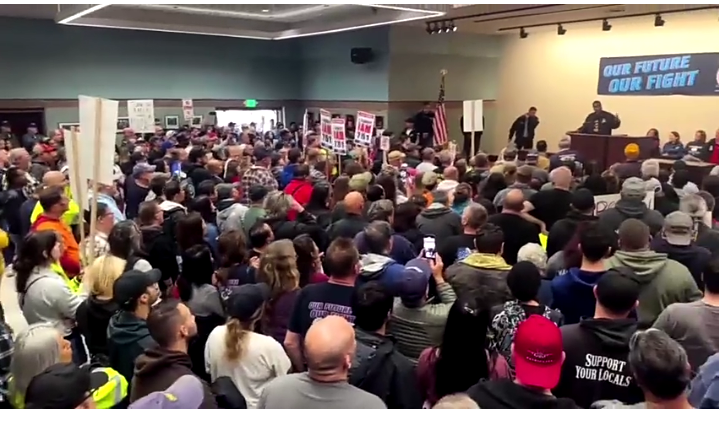Boeing Workers End Seven-Week Strike After Accepting New Contract.
Boeing’s largest union, representing its U.S. West Coast factory workers, has accepted a new contract that includes a substantial pay rise, bringing an end to a seven-week strike that had halted much of the company’s jet production. The union vote, which passed with 59% approval, marks the first Boeing strike in 16 years and comes as a relief for the planemaker, which has faced significant financial challenges.
The approved contract grants workers a 38% pay rise over four years, along with other benefits. The strike, which started on 13 September, had severely affected Boeing’s finances, with analysts estimating daily losses of approximately $100 million. Boeing shares rose nearly 2% in premarket trading on Tuesday following the announcement.
Union lead negotiator Jon Holden praised the outcome, stating, “This is a victory. We can hold our heads high.” Boeing CEO Kelly Ortberg expressed satisfaction with the ratification, acknowledging the difficulties of recent months but emphasising a commitment to restoring Boeing’s reputation for excellence.
The 33,000 machinists impacted by the strike work on Boeing’s most popular jets, including the 737 MAX, 767, and 777. They had demanded a 40% wage increase and the reinstatement of a defined-benefit pension, which had been replaced a decade ago by a 401(k) retirement plan. Although the pension will not be reinstated, Boeing has agreed to increase its contributions to the existing 401(k) scheme. The contract also includes a commitment from Boeing to build its next aircraft in the Seattle area—a first for the company.
President Joe Biden and Acting Labour Secretary Julie Su, who facilitated the negotiations, commended the agreement, with Biden stating, “We’ve shown that collective bargaining works.” The vote came a day before the U.S. national elections, where Biden has openly supported unions throughout his term.
Challenges Ahead for Boeing
With the strike over, Boeing faces the challenge of ramping up production, which will take several weeks to restore to pre-strike levels. Production of the 737 MAX, for example, is expected to remain low in the near term before gradually reaching the target of 38 units per month by 2026.
During the strike, Boeing secured $24 billion in financing to safeguard its credit rating amidst revenue losses. While the contract approval has alleviated some pressure, analysts estimate that the pay rise and ratification bonuses could add over $1.1 billion to Boeing’s wage costs over the four-year period.
Boeing’s relationship with its Pacific Northwest machinists has been strained by years of modest wage increases and high living costs in the Seattle area. Some workers, such as 777 assembly worker Thomas Amilowski, expressed dissatisfaction, describing the contract as a “defeatist outcome.” Holden acknowledged the mixed reactions but highlighted the potential for workers and Boeing management to rebuild trust.
Under the new contract, the average machinist salary is expected to reach approximately $119,309 per year by the end of the term, up from a previous average of $75,608. With over 26,000 union members participating in the vote, turnout was nearly 80%.
Boeing’s return to full production will begin this week, with workers resuming their roles as early as Wednesday. The company has warned that some employees may require retraining after the extended period off the factory floor, underscoring the challenges that remain as Boeing seeks to regain stability in a competitive aerospace industry.
Reuters



